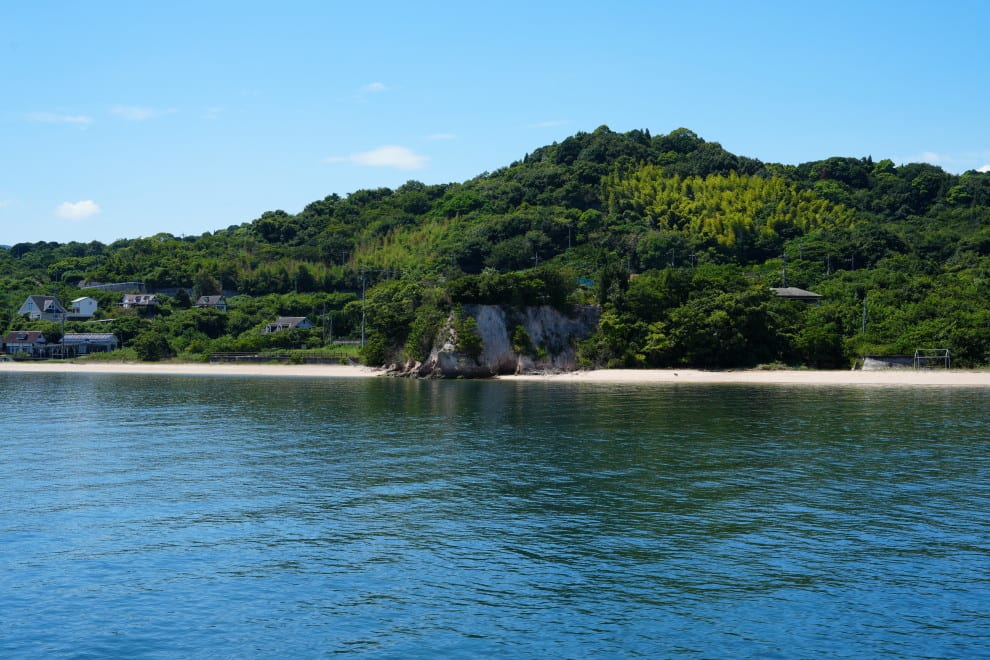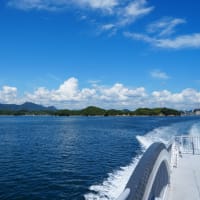"Nobunaga was a great man."
No one deserves the Nobel Prize for Literature more than Masayuki Takayama.
December 08, 2022
The following is from Masayuki Takayama's column in the latter part of today's issue of Shukan Shincho.
This article also proves that he is the one and only journalist in the postwar world.
This paper also proves that I have hit the nail on the head in the previous chapter.
It is a must-read not only for the Japanese people but for people worldwide.
Nobunaga was a great man.
Yahweh, the God of Judaism, created the heavens, the earth, and all things, including human beings.
But he was a little careless and created the Baal God and many other gods, so he ended up giving the command to the Jewish people not to worship other gods.
The people obeyed, but Yahweh now said, "Do not speak My name in excess."
They were told not to say, "God, help me," or to ask God for help.
Yahweh also hates LGBT people, and the city of Sodom was burned to the ground.
In this respect, Japanese gods are different. They are devoted to their people.
If there is a calamity, God purifies it and casts it into the river. The river god passes it to the God of the sea, and finally, the God of the bottom of the water buries it.
The river god had a bit of an appearance in "Spirited Away."
The Ise Jingu Shrine, Suwa Taisha Shrine, and Toyokawa Inari Shrine, which worship such gods, are built on the Median Tectonic Line, a major fault line running through the Japanese archipelago.
They are there to quell earthquakes and volcanic eruptions caused by the fault line.
Japanese deities, however, dislike impurity, especially death. In particular, they hate death. That is why funerals are never held in shrines.
People were so annoyed that they gave leave of absence to their servants who were about to die, and many of them died on the road.
Akutagawa's "Rashomon" describes a Kyoto city overflowing with such corpses.
A monk at a temple took notice of the devastation.
When Buddha entered Nirvana, he told his disciples not to hold funerals, but they decided not to listen to him and began to take care of the dead.
The monks organized the funerals and sold Dharma names, stupas, and tombstones.
It was clear profit for the monk.
When money was made, and the number of believers who seriously believed in Nirvana increased, the priests became presumptuous.
Ferocious (armed) monks ravaged the capital, and the monk corps intervened in political disputes to influence politics.
Around this time, Hōhō Shirakawa lamented that "the flow of the Kamo River and the warrior monks" were not at one's will.
The priests of Ikkō-shū finally gained control of Kaga, and Nobunaga took action against those who abused their religious beliefs.
He defeated the Ishiyama-ji Temple, the head temple of the Ikkō-shū, and took the Enryaku-ji Temple of the Tendai sect on Mount Hiei.
The Chronicle of Nobunaga says that he killed all the priests, including women and children.
His behavior was such that Lewis Freud condemned it as "the work of the devil."
However, historical writer Shiono Nanayo has a different assessment.
After Nobunaga, the priests learned to know their place and stopped meddling in politics," she says.
Kirishitan, another foreign religion, preached the love of God and engaged in the slave trade.
When Hideyoshi preached to the Jesuit Coelho to be a true human being, Coelho rebelled, spoke against the Kirishitan lords, and plotted to avenge Hideyoshi.
Both Ieyasu and Iemitsu disliked the political nature of such Christians and even killed women and children in the Shimabara Rebellion.
It was the moment when Japanese Christians knew their place.
In Five Public Notices, the Meiji government also strictly forbade the proselytizing of evil ways, including Kirishitan.
In fact, there was no progress for Christians outside the sea, and in the US, they used enslaved Black people until three years before that, and when they were banned, they, in turn, bought coolies.
In Japan, on the other hand, religion was disciplined, and it did not cause messiness.
But after the war, along came the idiot MacArthur.
This foolish general, who was beaten by the Japanese army and even fled before the enemy, did not know "the noble cause" that was the source of the strength of the Japanese military.
He thought it was the faith in the Japanese gods and imposed the GHQ Constitution, which declared Shintoism evil.
For this reason, worshipping the monument to the loyal souls and visiting Yasukuni were condemned, but in reaction, Buddhism, Christianity, and other religions were allowed to do whatever they wanted.
Aum killed three members of a lawyer's family and murdered eight people in Nagano, but even police investigations were blocked on the grounds of freedom of religion.
Soka Gakkai meddled in politics that Nobunaga did not approve, and Sun Myung Moon, supported by the Asahi Shimbun through the lie about comfort women, forced the Japanese to pay money to atone for their sins and encouraged Japanese women to become sex slaves to Koreans.
In the wake of Sun Myung Moon's irreverence, the Diet has, for the first time, taken a scalpel to a heresy other than Shintoism and has come to realize its evil—or rather, its evil from the gourd.
Foreign religions do not suit the Japanese.
Japanese gods are the best.
No one deserves the Nobel Prize for Literature more than Masayuki Takayama.
December 08, 2022
The following is from Masayuki Takayama's column in the latter part of today's issue of Shukan Shincho.
This article also proves that he is the one and only journalist in the postwar world.
This paper also proves that I have hit the nail on the head in the previous chapter.
It is a must-read not only for the Japanese people but for people worldwide.
Nobunaga was a great man.
Yahweh, the God of Judaism, created the heavens, the earth, and all things, including human beings.
But he was a little careless and created the Baal God and many other gods, so he ended up giving the command to the Jewish people not to worship other gods.
The people obeyed, but Yahweh now said, "Do not speak My name in excess."
They were told not to say, "God, help me," or to ask God for help.
Yahweh also hates LGBT people, and the city of Sodom was burned to the ground.
In this respect, Japanese gods are different. They are devoted to their people.
If there is a calamity, God purifies it and casts it into the river. The river god passes it to the God of the sea, and finally, the God of the bottom of the water buries it.
The river god had a bit of an appearance in "Spirited Away."
The Ise Jingu Shrine, Suwa Taisha Shrine, and Toyokawa Inari Shrine, which worship such gods, are built on the Median Tectonic Line, a major fault line running through the Japanese archipelago.
They are there to quell earthquakes and volcanic eruptions caused by the fault line.
Japanese deities, however, dislike impurity, especially death. In particular, they hate death. That is why funerals are never held in shrines.
People were so annoyed that they gave leave of absence to their servants who were about to die, and many of them died on the road.
Akutagawa's "Rashomon" describes a Kyoto city overflowing with such corpses.
A monk at a temple took notice of the devastation.
When Buddha entered Nirvana, he told his disciples not to hold funerals, but they decided not to listen to him and began to take care of the dead.
The monks organized the funerals and sold Dharma names, stupas, and tombstones.
It was clear profit for the monk.
When money was made, and the number of believers who seriously believed in Nirvana increased, the priests became presumptuous.
Ferocious (armed) monks ravaged the capital, and the monk corps intervened in political disputes to influence politics.
Around this time, Hōhō Shirakawa lamented that "the flow of the Kamo River and the warrior monks" were not at one's will.
The priests of Ikkō-shū finally gained control of Kaga, and Nobunaga took action against those who abused their religious beliefs.
He defeated the Ishiyama-ji Temple, the head temple of the Ikkō-shū, and took the Enryaku-ji Temple of the Tendai sect on Mount Hiei.
The Chronicle of Nobunaga says that he killed all the priests, including women and children.
His behavior was such that Lewis Freud condemned it as "the work of the devil."
However, historical writer Shiono Nanayo has a different assessment.
After Nobunaga, the priests learned to know their place and stopped meddling in politics," she says.
Kirishitan, another foreign religion, preached the love of God and engaged in the slave trade.
When Hideyoshi preached to the Jesuit Coelho to be a true human being, Coelho rebelled, spoke against the Kirishitan lords, and plotted to avenge Hideyoshi.
Both Ieyasu and Iemitsu disliked the political nature of such Christians and even killed women and children in the Shimabara Rebellion.
It was the moment when Japanese Christians knew their place.
In Five Public Notices, the Meiji government also strictly forbade the proselytizing of evil ways, including Kirishitan.
In fact, there was no progress for Christians outside the sea, and in the US, they used enslaved Black people until three years before that, and when they were banned, they, in turn, bought coolies.
In Japan, on the other hand, religion was disciplined, and it did not cause messiness.
But after the war, along came the idiot MacArthur.
This foolish general, who was beaten by the Japanese army and even fled before the enemy, did not know "the noble cause" that was the source of the strength of the Japanese military.
He thought it was the faith in the Japanese gods and imposed the GHQ Constitution, which declared Shintoism evil.
For this reason, worshipping the monument to the loyal souls and visiting Yasukuni were condemned, but in reaction, Buddhism, Christianity, and other religions were allowed to do whatever they wanted.
Aum killed three members of a lawyer's family and murdered eight people in Nagano, but even police investigations were blocked on the grounds of freedom of religion.
Soka Gakkai meddled in politics that Nobunaga did not approve, and Sun Myung Moon, supported by the Asahi Shimbun through the lie about comfort women, forced the Japanese to pay money to atone for their sins and encouraged Japanese women to become sex slaves to Koreans.
In the wake of Sun Myung Moon's irreverence, the Diet has, for the first time, taken a scalpel to a heresy other than Shintoism and has come to realize its evil—or rather, its evil from the gourd.
Foreign religions do not suit the Japanese.
Japanese gods are the best.

2024/8/26 in Onomichi
















